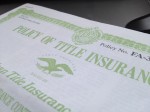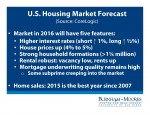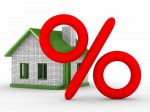Most Often Asked Homebuyer Questions – Answered!

Buying a home is a major lifestyle and investment decision. Homebuyers have a lot of questions throughout every step of the process and I have found that many of the questions are common to many. Here are some answers to the most common questions I get asked.
Q: What home can I afford?
That depends, of course-on your income and other financial obligations. There are many Home Affordability Calculators for a ballpark figure. A visit to the Optima Properties website will offer you many tools under the Finance Center!
Before you start to shop, make sure that you know exactly what you can afford by getting pre-qualified by your financial institution of mortgage broker.
Q: Can I buy a home and sell my current one at the same time?
Yes, you can-but it’s the real estate equivalent of walking a tightrope. This is one of the trickiest questions to answer, on the one hand, if you buy a home before you sell the one you’re in, you’re overextended financially; if you sell before you buy, you might need to rent a while before finding a new place. There are ways to do both at once, and one option is to request a “sale contingency” in your contract. This means you only agree to buy a home if you can sell the one you’re in. The only downside is if your seller doesn’t agree and will not agree to this condition….it never hurts to ask!
Q: How many homes should I see before making an offer?
As many as you need to! While home shoppers these days can look at hundreds of homes online, most need to physically visit the area and stand in the properties before they put in an offer. Keep in mind, this varies tremendously for each person. Some people find their home within hours of looking or make an offer sight unseen because they have definitively defined their criteria. For others, it takes months and sometimes over a year if they are trying to determine the area, lifestyle, and type of home that meets their requirements.
Q: What do you think the seller will accept as a fair price?
As a rule of thumb, knocking 5-10% off the list price
won’t ruffle any feathers for an initial offer. If the property has been sitting on the market for months, you can venture below that, but the bottom line is, you never know how low a seller will go, as they have different motivations for selling. Your Exclusive Buyer Agent should develop a Comprehensive Market Analysis to determine the market value of the property. This should be your guideline as to how much to offer and how high to go.
Q: How do I know if the property is a good deal?
While there’s no crystal ball on whether a certain home is a bargain and will appreciate, rest assured that with research, you can keep surprises to a minimum. The best way is to check out comps-what similar properties are selling for in the area.
Q: How quickly can I close?
If you are paying cash you can typically close in the time it takes to get the home inspected and have a lien, permit, and title search conducted. The new TRID requirements for home loans have extended the time required to get a mortgage. I advise all my buyers to not commit to a closing for less than 60 days from the effective date of the contract.
Q: Should I get a home inspection?
My only answer to this question is YES, YES, YES! A certified and licensed home inspector ( not your father in law) will look into the condition of the roof, electricity, heating and air, plumbing, among other functions and conditions of the property. Even if you are just purchasing land you should check for soil contamination, septic perkability, etc.
Q: Can I back out if I change my mind?
While buyers can always back out of a deal, doing so without good reason may forfeit their earnest money and full deposit. The form of contract you choose to use may provide you with different outs. Contingencies are great “escape clauses. For example, if you enter into an AS IS contract upon an unsatisfactory home inspection, the buyer can ask for their deposit back. Another contingency is “subject to appraisal.’” That means you can back out if the appraisal either ordered by your closing agent or your lender results in a valuation that is less than the agreed to purchase price.
Bear in mind that the more contingencies you include in your offer the less room you have to negotiate other terms and conditions of the contract with the Seller.
There is not question to small or unimportant when purchasing a home. There is a wealth of information available and your agent should assist you in getting your questions answered in a timely manner.











 Kim N. Bregman
Kim N. Bregman